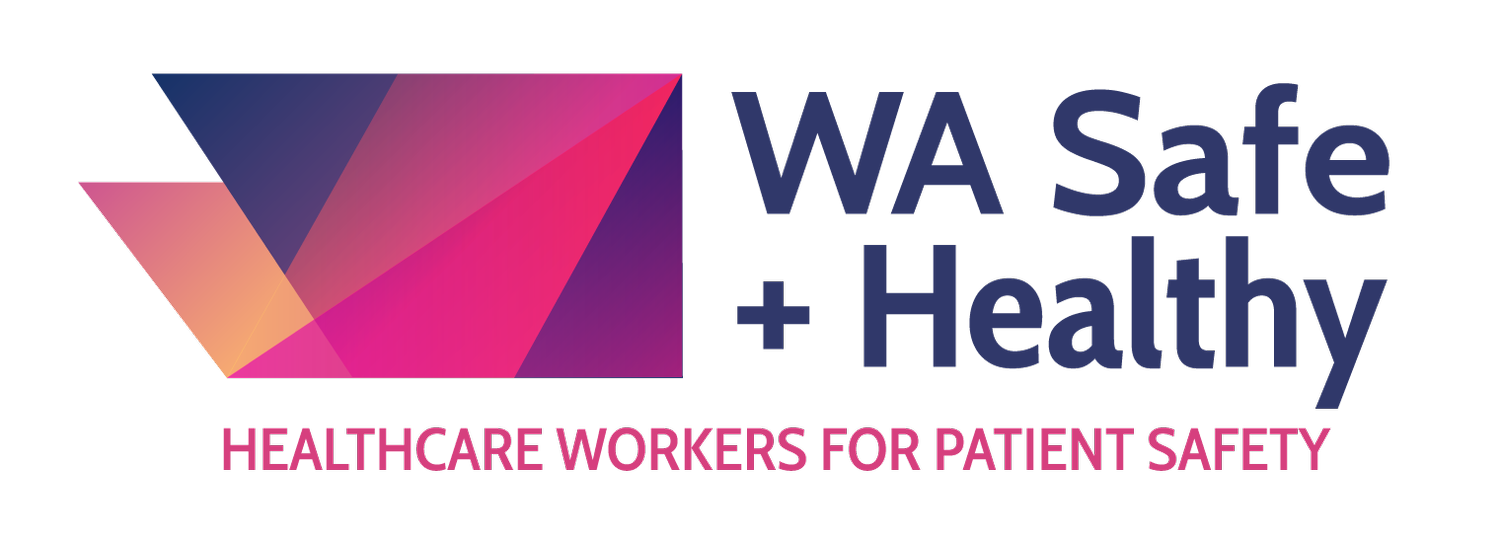During the worst of the pandemic, Washington healthcare workers put themselves at risk to protect us. While many aspects of our lives have returned to normal, our healthcare workers continue to be understaffed, overworked, and burned out.
Washington faced inadequate healthcare staffing for years before the pandemic as a result of years of financially-motivated decisions by hospital executives to not invest in safe staffing, but the pandemic pushed long-standing staffing problems to a crisis point. While media coverage about hospital capacity has decreased, the unmanageable working conditions Washington healthcare workers face have not – if anything, they’ve worsened.
Healthcare workers have told hospital executives what they need to make their jobs manageable and improve safety for workers and patients and have been ignored. Instead of supporting what healthcare workers said they needed, hospital executives fought tooth and nail to protect their ability to stretch staff to their limits.
Healthcare workers are once again calling on state legislators to pass safe staffing standards to address the hospital staffing crisis.
Safe staffing standards that protect any one healthcare worker from dangerously high patient loads will let them do their jobs safely and give patients the care they deserve.
The safe staffing standards healthcare workers have asked for are also the only way we can begin to address Washington’s hospital staffing crisis, by reducing the number of healthcare workers leaving their jobs due to burnout and attracting new workers to the field.
The WA Safe + Healthy campaign is a coalition of healthcare workers represented by SEIU Healthcare 1199NW, UFCW 3000, and the Washington State Nurses Association. Together, we’re calling on lawmakers in Olympia to:
Pass safe staffing standards that protect any one healthcare worker from dangerously high patient loads and create adequate enforcement to ensure hospitals follow safe staffing standards;
Enforce existing overtime and meal and rest break laws to ensure our healthcare workers are getting their legally required break time and end the abuse of mandatory overtime;
And invest in workforce development to increase the number of healthcare workers entering the field, an important part of addressing the hospital staffing shortage but only alongside safe staffing standards that also protect them from the massive burnout and unmanageable conditions our healthcare workers are currently facing.
Frequently asked questions
-
Healthcare workers do the work they do because they want to help people, but in no career could you expect to attract new workers by promising them they’ll be overworked and burned out within a year. Safe staffing standards that ensure any one healthcare worker has a manageable patient load will begin to address the staffing crisis by reducing burnout and attracting new workers to the field.
The WA Safe + Healthy coalition is also calling on legislators to invest in workforce development to increase the number of healthcare workers entering the field — but workforce development is only a sustainable solution alongside safe staffing standards that also protect them from the massive burnout and unmanageable conditions our healthcare workers are currently facing.
-
Safe staffing standards determine how many patients any one healthcare worker can care for at one time. Staffing committees within each hospital determine additional staffing needs tailored to each specific hospital and unit. This is far from a ‘one-size-fits-all’ approach — it guarantees safe staffing for workers and better care for patients while providing flexibility based on patient care needs.
-
Yes, thanks to advocacy from healthcare workers Washington legislators passed legislation requiring adequate meal and rest breaks and limiting the use of mandatory overtime. At the start of the pandemic, however, hospital executives were able to suspend compliance of existing laws because of the unforeseen emergency. While that may have been justified at the start of the pandemic, as we approach two years hospital executives can no longer claim COVID is unforeseen.
Healthcare workers have tried to work with hospital executives to comply with existing law to make their jobs manageable and to improve safety for healthcare workers and patients, but they’ve been ignored. Instead, executives continue to overwork healthcare workers who are leaving because they are burned out, which is a crisis for both workers and patients. Now, they’re calling on lawmakers to help solve the staffing crisis.
